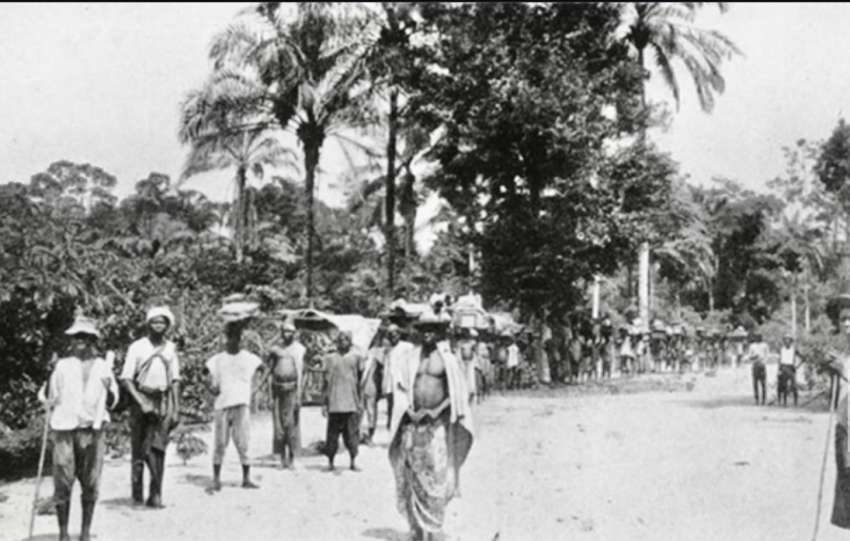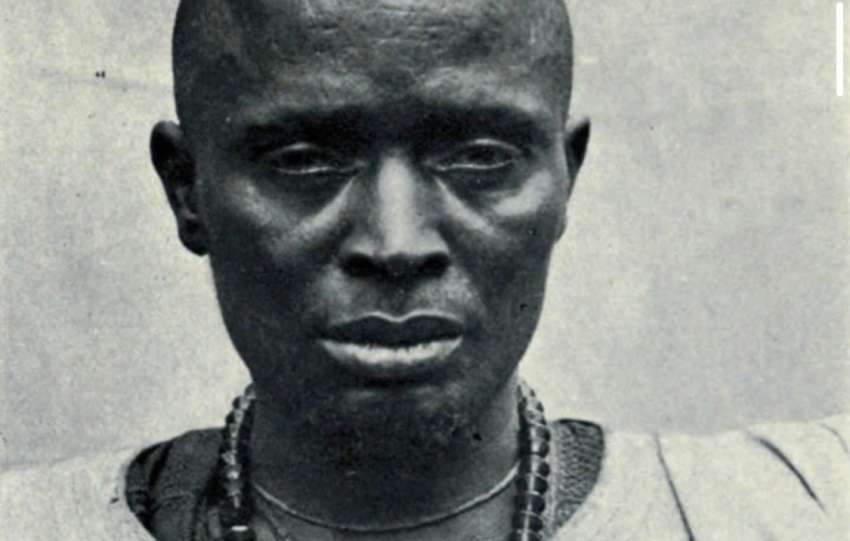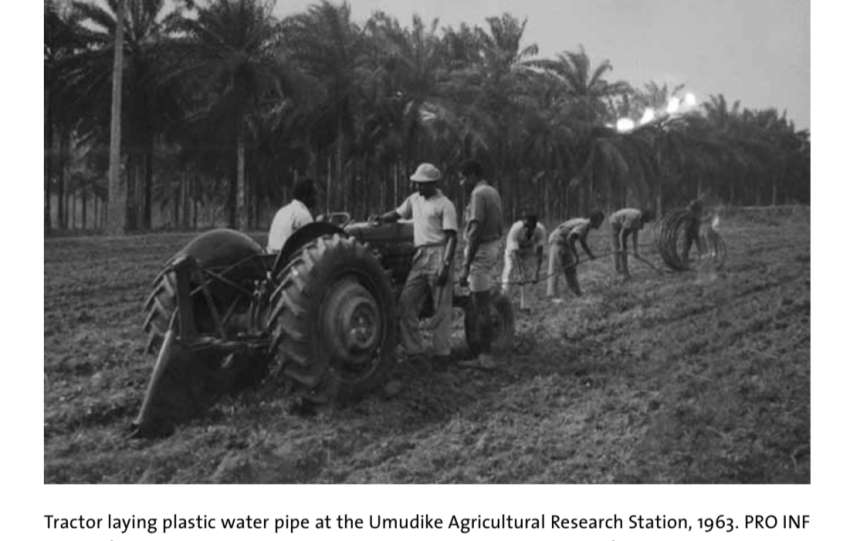A British colonial mineral survey party in the Oguta area. Mineral surveys of the Southern and Northern Nigeria Protectorates were commissioned in 1903 and 1904 by the British Secretary of State for the colonies.
Through the lens of the current colonial economy of colonial Nigeria, Oguta was economically exploited by the British. After the 1880s, Britain…




